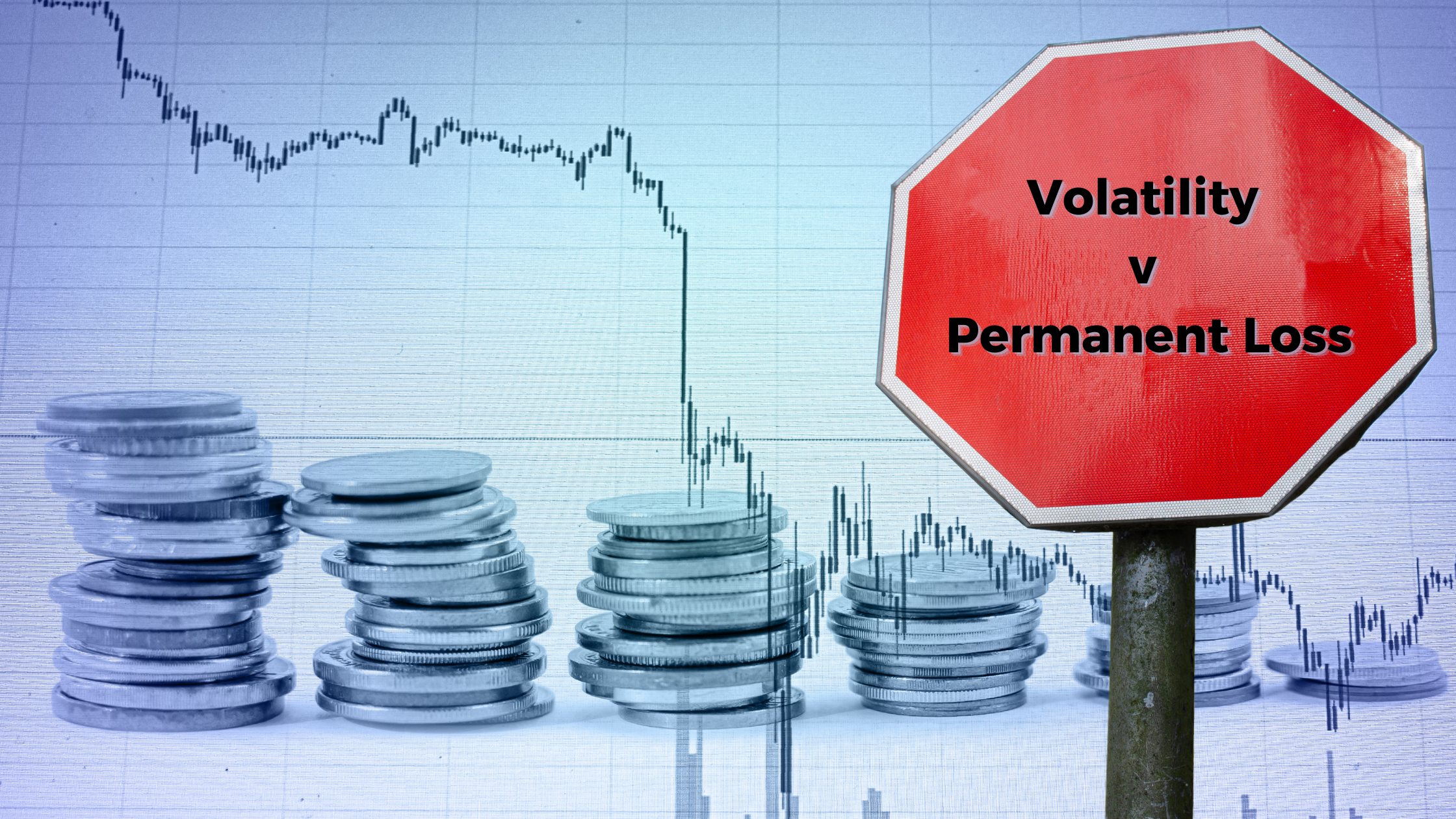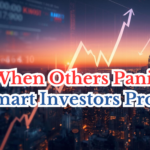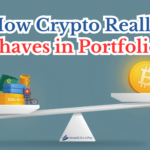A common mistake is to confuse volatility with permanent loss.
Stockmarkets see volatility all the time but have never experienced a permanent loss.
Investment Risk can be explained in different ways. A classic measure of risk is VOLATILITY – i.e. how much the price of an asset swings around. This is how an IFA or wealth manager might define risk. On this measure we could say Bitcoin is more volatile than stocks which, in turn, are more volatile than regular BTL property.
It’s not always clear-cut because some stocks or ETFs may have lower volatility than BTLs. And some flavours of property (eg leveraged developments) could have higher volatility than Bitcoin.
Permanent Loss?
But volatility doesn’t consider the ultimate SAFETY of your capital. What really matters to investors is preventing a PERMANENT loss of capital. If you’re investing for long-term compounded returns, short-term volatility doesn’t matter – unless you need to retire soon and pull out a big chunk of that capital to live off. So, mitigating the risk of a permanent and full loss of your capital is the risk measure investors should really focus on.
100+ years and counting …
More than a century of data shows that investing in diversified equities has NEVER resulted in a permanent loss of capital (see chart below). Moreover, stocks have witnessed strong inflation-beating compounded returns despite the numerous crises, recessions, wars and pandemics …
Markets never lose money – only investors lose money by selling at the wrong time. In other words, as long as you hold on over a period of time (and not trade around) you would ALWAYS make money by investing in a diversified portfolio of shares. EVEN if you somehow only invested at the peaks of every cycle.
In fact, none of the broad mainstream asset classes (Shares, bonds, residential property), has ever resulted in a permanent loss of capital. The property market has been through cycles and corrections but has NEVER experienced a permanent loss of capital.
When sticking to low-cost ETFs and/or vanilla property projects, history shows a ZERO chance of a PERMANENT loss of your capital. Of course, you still needs to undertake DD on the ETFs, Funds, or property you’re looking to invest in.
The chart above shows how stocks have appreciated since 1871 (in real terms, adjusted for inflation), with all the events that have happened since. Never a permanent loss.
Always Remember:
- Time in the Markets always beats timing the markets
- Stay Diversified
- Minimise those leakages: Fees, Inflation, and Taxes
- Financial Markets are a great source of recurring income
- ETFs, Balanced Funds and Options achieve all the above
- Being educated helps you outperform 99% of the population
… to ensure your investments work for YOUR financial freedom (not someone else’s)
And …
For more guidance, our Investment Academy will help you implement all of this in a step-by-step way.
Thousands of people have learnt how to diversify and pound-cost-average into low-cost, set-and-forget ETFs & Funds for inflation-beating growth. And Options to create recurring income.
Click here to learn about our Investment Academy
Finally …
– Don’t take the above as advice as it may not apply to you personally
– Your Capital is at Risk
– You may not be covered by the FSCS
– Anything mentioned in a podcast or in a previous article was valid at that time and may not continue to be now








